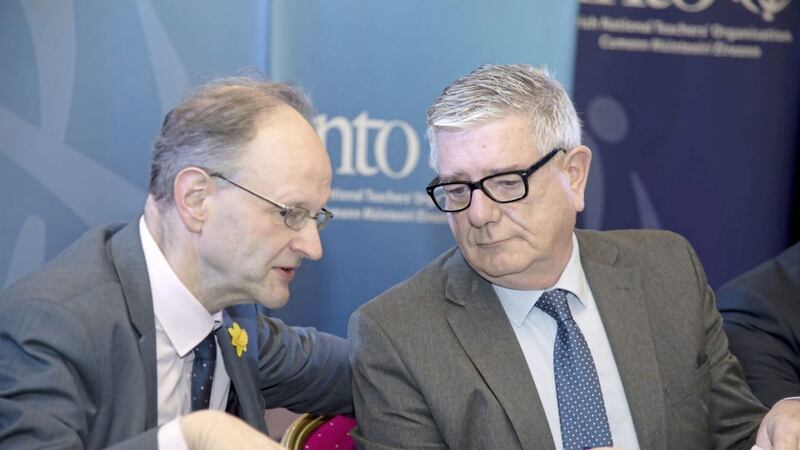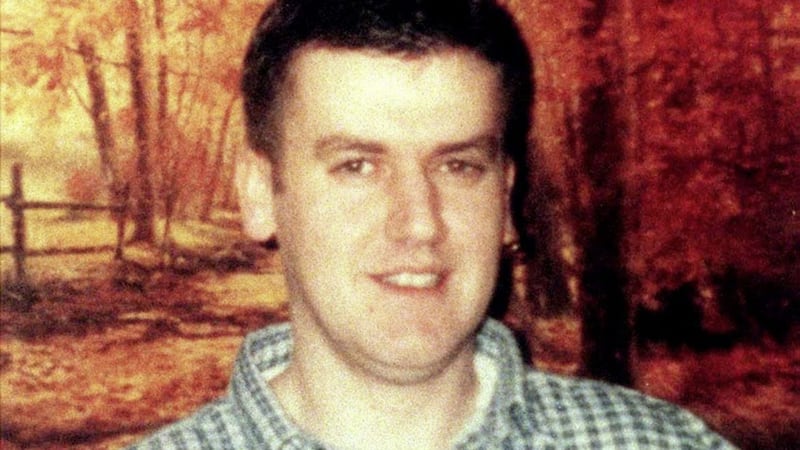TEACHERS will escalate action over pay if a settlement is not reached before Easter, a conference has heard.
In its New Decade, New Approach deal the executive promised to "urgently resolve the current teachers' industrial dispute".
So far, £19 million has been made available to ease pressures on pay for teachers and other non-teaching staff.
However, about £80m is needed. That takes no account of workload, which is another reason for action. The dispute also includes a refusal to cooperate with school inspections.
A deal has been agreed between unions and employers but no offer has been made.
The INTO northern conference in Newry heard yesterday there was growing frustration.
Delegates questioned the definition of "urgently" pointing out that 56 days had passed since the executive re-formed.
It was warned that if no formal offer was made before Easter, unions would plan and coordinate an escalation of industrial action.
INTO northern secretary Gerry Murphy said it was unacceptable that issues raised at last year's conference appeared to have been ignored.
The deal agreed covers back-pay for 2017/18 and 2018/19. There would need to be further negotiations to cover 2019/20 and 2020/21.
"The delay in concluding this business is making our members nervous," Mr Murphy said.
"We haven't forgotten what happened in 2016 when Peter Weir MLA withheld the whole one per cent cost of living increase in that year. It was, you recall, the straw that broke the camel's back and precipitated the industrial action that is currently ongoing. The agreement in principle needs to translate into a firm offer. The members have a right to an offer and expect it be made to them prior to the Easter holidays.
"In parallel, we anticipate very quickly getting into negotiation for the cost of living rise due to our members for this academic year and the next. Should the members not accept the proposed agreement then I fear we are in for an even more prolonged and difficult period of industrial relations."
The first three public motions also focussed on pay and the long-running action.
Teacher Siobhan McMullan from north Antrim spoke about the disparity in pay between north and south.
She said a teacher in the north at the top of the upper pay scale earned £38,000. In the Republic, the same teacher would earn €60,000 and still be climbing the scale.
Many teachers in border counties, she noted, were opting to go south while newly qualified staff were taking posts in the middle east.
The second motion concerned inspections.
The union gave Education Minister Peter Weir a standing ovation when he promised a "radical change" in the way inspections are carried out. He added that he detailed this in a previous policy paper Reducing the Burden.
"At the heart of this change is a change in the culture of inspections based around three main principles. First of all, we need to see a higher trust in the professionalism of teachers and to allow teachers to deliver, and, accompanying with that, a light touch regime when it comes to what monitoring needs to happen.
"Secondly, we need to reach a point where there is no additional data to be produced, by schools, head of any inspection. We should trust teachers as experts in their fields and not just data providers. The best schools are schools which start from the point of self-evaluating.
"Thirdly, there must be a change in the approach and in relationships. We need to shift away from the current model to an educational improvement service based around collaboration, based around supporting schools, based around mutual respect and generating two way discussions."








